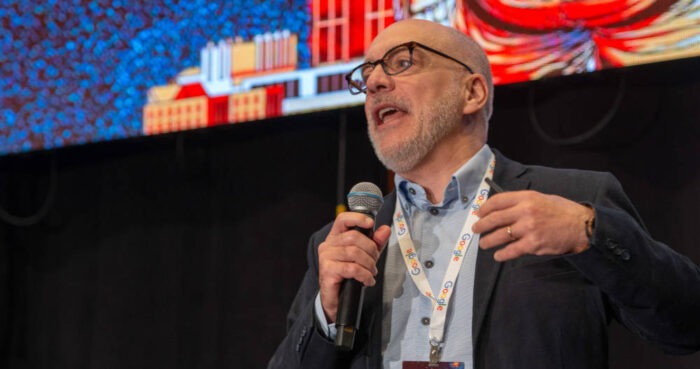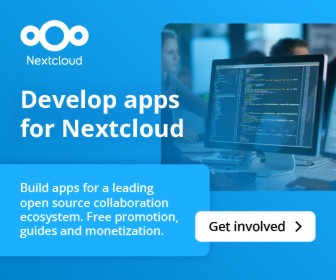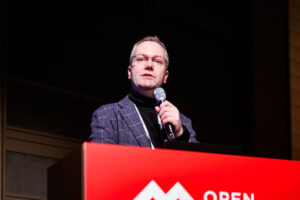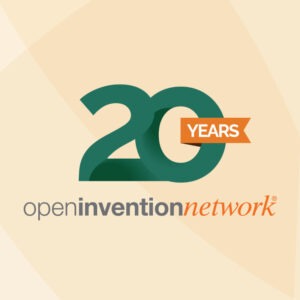When it comes to Open Source Initiative’s 2025 board election, we’re reminded of Yogi Berra’s observation that, “It ain’t over ’til it’s over.”

There’s an online petition calling on Open Source Initiative to publish the full results of the election it held in March to fill three seats on its board of directors.
If you’re new to open source, OSI is an organization that was formed in 1998 to protect and promote the Open Source Definition. From its beginning, it’s basically been a standards body and is widely seen by both users and developers of open-source software as being the arbiter of what is — and what is not — a valid open-license license. In other words, you can call your project “open source” all you want, but unless it’s covered by an OSI approved open source license, it’s not open source.
Should Open Source Initiative publish the full results of the election it held in March, including for candidates who were disqualified after voting had ended and were excluded from the count?
Total Voters: 26 |
The petition is being led by Ian Kelling and Aaron Wolf, with input from others, including Bradley Kuhn who has some skin in the game. His candidacy for an affiliate seat — proposed by the Software Freedom Conservancy where he works — is key to the petition. Kelling and Wolf are both free software advocates, with the latter being a co-founder at Snowdrift.coop, which he describes on LinkedIn as “a fundraising organization dedicated to Free/Libre Open Source Software and Free Cultural Works,” and the former being a Senior Systems Administrator and a board member at Free Software Foundation.
“I identify as part of the free software community much more than as open source,” Kelling told me in an email exchange “Open source started as a splinter movement from free software, and its popularity as a term has grown primarily because of corporate adoption and money.”
This means that like many of us, Kelling sees himself as being part of both worlds.
“Because there are no bright lines about what makes a community or a member of it, I don’t dispute being part of the open-source community,” he added. “But I want it to be known that it is because I’m part of the free software community that I end up being involved in what you might call several different overlapping communities.”
Weren’t Full Results Already Published?
You will be excused for thinking that since the votes have been tallied and the winners announced that we’ve already seen the full results of the election. Unfortunately, that’s not the case. As explained in the online petition, in this election the full results weren’t released because they purposely were never counted:
“In 2025, OSI excluded all votes for three candidates before publishing results. The announcement of the altered voting results did not name the removed candidates, but they were Bentley Hensel, Bradley Kuhn, and Richard Fontana (incidentally, a former OSI director).
“Notably, Kuhn and Fontana campaigned on a joint OSI Reform platform which included four proposals, the most significant being a call to repeal the newly-adopted Open Source AI Definition (OSAID). They also advocated for revising the OSI Board Member Agreement, because they interpreted the clause requiring members to ‘support publicly all Board decisions’ as being overly expansive and stifling. They proposed clarifying or limiting the clause to achieve a better balance.
“Normally, as in prior years, as with other organizations, and as stated during candidate orientation, signing of the Board Agreement would happen only with the election winners as part of getting seated as new directors. Kuhn and Fontana say that they brought up their concerns about the Agreement during candidate orientation and came away with the understanding that they would be able to discuss how to resolve the issue later if they won the election.
“Then, about one hour after voting ended, OSI emailed a new requirement to the 11 non-incumbent candidates. They gave a 47-hour deadline for all to sign the board member agreement or be disqualified.
“Hensel missed the deadline simply by not checking his email soon enough. Having no chance to otherwise resolve or discuss their agreement concerns, Fontana and Kuhn returned signed board member agreements that included their proposed changes. OSI then published the announcement which excluded all votes for the three candidates.”
The OSI Board Member Agreement that’s central to this petition has been a bone of contention for a while, because it takes away board members’ rights to publicly express disagreement with a board decision after it’s made, even if the vote was close and indicating a degree of division on the board.
Other Problems With This Election
OSI had circled its wagons long before this election, starting in October when its announcement of the release of the Open Source AI Definition Version 1 wasn’t met with open arms. Even Bruce Perens, who wrote the original version of the Open Source Definition — which is OSI’s entire reason for being — said that OSAID doesn’t adhere to open source principles.
For this election, the organization began playing hardball against OSAID opponents from the beginning. For example, it denied the nomination of another supporter of the OSI Reform platform by inventing a timing issue around the filing of that person’s nomination. Also, unbeknownst to everybody, it stacked the deck against would be reform candidates by misstating the nature of the seats involved in the election — “officially” proclaiming on its website that there was a single affiliate seat and two individual member seats up for grabs, when the opposite was the actual case — and conveniently noticing the “mistake” only after the voting was over, but before the votes were counted.
The eleventh hour change, requiring candidates to sign the agreement before the votes were counted instead of after the winners had been decided, was considered necessary because it was widely expected that Kuhn and Fontana were planning to refuse to sign if they were elected. Given that they were also running in opposition to OSAID, forcing them to sign ahead of the count solved two problems for the entrenched status quo at OSI, since it would mean that their refusal to sign would end their candidacy, and if they didn’t refuse, they would then be muzzled by the agreement.
There were other shenanigans, which I chronicled both before, during, and after the election here, here, here, here, and here.
Should You Sign?
The decision on whether to sign the petition is entirely personal. I signed it, because even though I would’ve preferred the election to be scrapped and done over, the powers-that-be at OSI have made it clear that isn’t going to happen.
I signed, basically because I would like to see whether OSI’s membership voted for reform — and openness — or for OSAID, which probably appeals to OSI’s corporate sponsors, who prefer permissive licenses much more than do its dues paying members who lean more towards copyleft.
What this boils down to is that I would like to know whether Kuhn, Fontana, and Hensel were cheated out of their seats.
If you asked my advice, I’d likely tell you to go ahead and sign. Be forewarned that the process is kind of geeky if, like me, you’re not a developer, but you can always do like I did and take advantage of the email option.
“I don’t know exactly how long we will accept signatures, but if OSI does nothing I expect it will be at least four months,” Kelling said. “If OSI decides to double down on voter disenfranchisement and unfair elections, we will have to decide on our next step. For example, OSI prominently advertises that by donating you get a vote, but that isn’t true if they won’t even count your vote.”
Christine Hall has been a journalist since 1971. In 2001, she began writing a weekly consumer computer column and started covering Linux and FOSS in 2002 after making the switch to GNU/Linux. Follow her on Twitter: @BrideOfLinux








hi